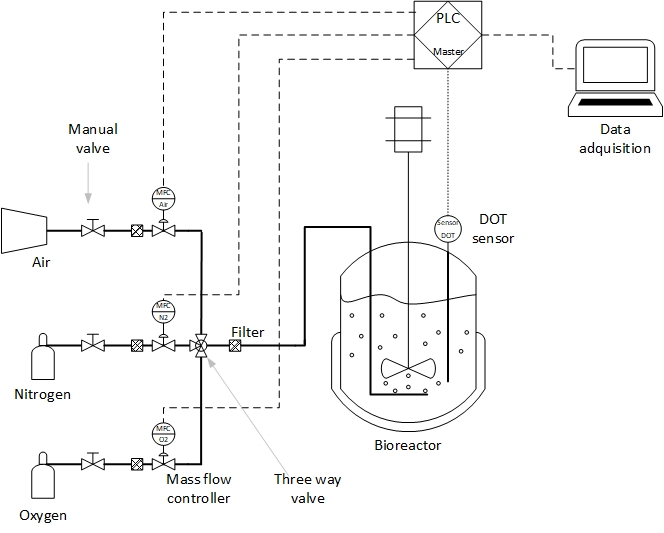 |
|
Control systems for dissolved oxygen tension (DOT) in stirred tank bioreactors (STB) commonly manipulate gas flow or agitation speed. However, this strategy alters hydrodynamic conditions thus interrelating oxygen and momentum transfer effects in the culture. The aim of this study was to develop an alternative DOT control system and characterize its performance in terms of control error and energy dissipation rates. Hence, a novel control algorithm was designed with three mass flow controllers by manipulating oxygen partial pressure at constant gas flow and agitation. The developed system was evaluated with an Escherichia coli culture and was found to control DOT with an absolute error below 2%. When compared to a standard controller, 42% lower accumulated error was found. The energy dissipation rate (EDR) by agitation was 0.06 W kg-1, and EDR variations via bubble wake and bursting were diminished with respect to the standard. Additionally, the system effectively responded to perturbations on set point (30, 50, 80%) and agitation (200, 500, 1000 rpm). To the best of authors’ knowledge, this is the first characterization of a DOT controller in terms of EDR and control error that could be used to study oxygen and momentum transfer effects separately in STB.
Keywords: Dissolved oxygen, mass flow controller, constant rpm, control algorithm, oxygen controllability, energy dissipation rate.
|
|
 |

